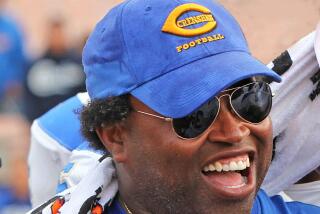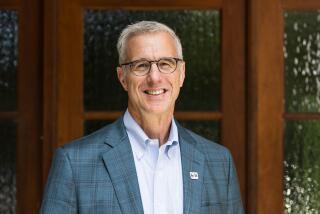CRENSHAW : Director Selected for Auto-Skills Center
- Share via
A year and a half after opening its doors, the Los Angeles Urban League Automotive Training Center has named Alfred Howard, a Crenshaw district native and retired U.S. Army lieutenant colonel, as permanent director.
Howard replaces acting director John Saia, a Toyota U.S.A. technical training professional who had been on loan from the Torrance-based company since the center was launched April, 1993, as a joint effort by the Urban League and Toyota.
Howard will oversee all operations at the Crenshaw Boulevard center, which has been lauded by dignitaries ranging from Los Angeles City Councilman Mark Ridley-Thomas to Prince Charles as a model jobs-training program. The center has taught 160 students such auto repair skills as brakes, suspensions and air conditioning.
Howard, 49, said he looks forward to helping people in the community where he grew up and now lives.
“I’m thrilled,” said Howard, a graduate of Dorsey High. “I have a background in administration, personnel training, teaching, automotive repair . . . Now I’ll be finally able to put them all together.”
In the Army, Howard was a helicopter pilot and vehicle maintenance supervisor, and most recently worked as a teacher at 112th Street School in Watts. That experience, he said, segues well into his new position at the center.
“Something I’ve always wanted to do is teach in the community I grew up in, to help the people I know,” he said.
Howard, like many other residents, said he routinely passed by the center after it opened wondering what was going on at the site, formerly an auto dealership.
Now that he is familiar with the center’s history and operations, Howard said one of his priorities is to step up student recruitment.
He is also looking to increase the number of employment partners--auto repair businesses that agree to consider hiring graduates of the center. Twenty-six of the 30 most recent graduates have landed jobs--the employment rate is regularly 90% or higher--but Howard says he wants to do better.
“We need to develop a waiting list of employers. A satisfactory performance on my end is having everyone employed . . . Students learn a lot of skills here, not just automotive work. We want everyone to have a place to go.”






